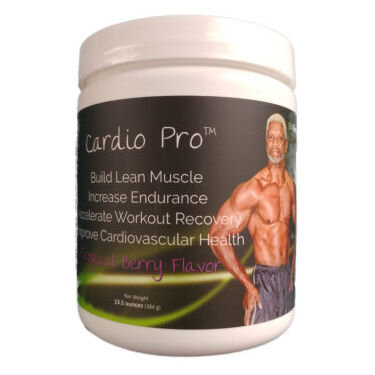Our Organic Cupuacu fruit powder is a lyophilized (carefully freeze dried) powder that is obtained from the juiced, white flesh of freshly picked Cupuacu fruit. The Cupuacu fruit grows on Cupuacu trees in South America. The Cupuaçu tree belongs to the cocoa family and grows to a height of 12-20 meters (30-65 feet). The fruit of the tree, which is called by the same name, has been a primary food source for natives in the rainforest for centuries and has a creamy, exotic pulp at the center of a large melon.
Cupuacu fruit is one of the most nutritious foods that grows in the Amazonian flood plains. It has a long history of traditionally recognized health rewards among locals and is beginning to be recognized internationally. (See more nutrient information below.)
Freeze-drying Organic Cupuacu fruit increases its nutrient density by 20 times . Incorporating Cupuacu powder into any nutritional beverage is a tasty, smart habit. Just add a tablespoons to a glass of water, milk, protein shake, bowl of cereal, etc.
Cupuacu Facts
Sold throughout the Amazonian jungle basin region, Cupuacu is the national fruit of Brazil and is prized for its good taste and health enhancing properties. It has been consumed by wise locals, for centuries.
Cupuacu fruit may eventually eclipse Acai berries as the most popular of all the South American plants (fruits and berries) because it has the same, if not superior health benefits. Also, Cupuacu is much easier to grow without destroying rain forests (see the video about Cupuacu and rainforests below). Pound for pound it occupies less space and is a much more resource efficient crop to grow than Acai. It truly is the antioxidant super food of the future.
Cupuacu fruit belongs to the Cocoa (chocolate) family with many of the energizing benefits of cocoa but with virtually no caffeine.
Historically, Cupuacu fruit has been a primary food source for natives in the rain forest for a thousand years and has a creamy, exotic and nice-tasting pulp at the center of a large melon sized fruit.
The Nutrients in Cupuacu:
Almost alone in the plant world, Cupuacu fruit contains a large amount of theograndins (extremely anti-oxidizing and detoxifying type of sulfated polyphenols). Cupuacu's sulfated polyphenols have a myriad of folkloric, as well as, scientifically-validated, nutritional benefits, which will be discussed below.
Our Organic Cupuacu powder is heavily endowed with:
vitamins B1, B2, B3
minerals
fatty acids
amino acids
and at least nine antioxidants (including Selenium, Vitamins A and C)
It also has a high flavonoid content.
In South America, this fruit is often called a "Pharmacy in a Fruit", because of the many health benefits its provides and the many health challenges it is traditionally believed to heal.
Large Amounts of Sulfated Polyphenols in Cupuacu:
Cupuacu contains an extremely rich concentration of sulfated polyphenol antioxidants. These sulfur-rich antioxidants appear to have a large number of longer-term good effects on the body including (and possibly most importantly) the neutralization of free radicals in the body's tissues. Cupuacu's unique sulfated polyphenol antioxidants have been shown in preliminary research to help lower cholesterol levels and improve brain function. They also have been shown to improve gastrointestinal system functioning (explaining the fruit’s traditional use by natives for GI problems), stabilize blood sugar and to generally improve cardiovascular system functioning.
Health Benefits From Eating Cupuacu:
There are many traditionally touted health benefits from eating Cupuacu. These benefits are absolutely synergistic — meaning not the result of any single nutrient, but the result of all Cupuacu's nutrients acting together like tag teams to stabilize blood sugar and mood, boost energy and physical function.
Until more scientific research is done, however, all benefits described below should be considered to be folklore, anecdotal and opinion. Further scientific research would need to be done to make reliable health benefit claims. Nevertheless, the amount of interest and perceived benefits from Cupuacu is beginning to be significant.
A primary health benefit of Cupuacu many people ascribe to Cupuacu is in regard to supporting the immune system to improve the body’s ability to fight disease.
Cupuacu has a (caffeine-like, although Cupuacu contains very little caffeine), energizing effect upon the mind. It is one of the few cocoa relatives that does not contain appreciable amounts of caffeine, yet it retains this energizing effect.
Improved circulation and lowered blood pressure are traditionally mentioned by those eating Cupuacu.
Cupuacu is traditionally considered useful for achieving healthier skin and hair
Cupuacu is believed to help with gastrointestinal health.
Cupuacu is regarded by locals as providing great help in maintaining healthier blood sugar and cholesterol levels (if this is true, it is most likely through lipid peroxidation inhibition)
Cupuacu is regarded as helpful to improve libido.
The above are some of the more commonly reported, as quickly attained benefits from eating the Cupuacu fruit. In general, it is safe to say that it is a nourishing food that may help virtually all aspects of human health by providing the body with nutrients (which are tools) that the body can use to improve its function.
Cupuacu - Frequently Asked Questions
What Does Cupuacu taste like?
Cupuaçu is its own unique taste. It is pleasant, sweet, sour, and slightly tart, slightly chocolatey, but with a heavy fruity component reminiscent of a mix of pear, banana, and pineapple. On top of that, there is a hint of something of a mix of aniseed and wintergreen or perhaps mango. To put it short, it simply tastes like cupuaçu.
How Many Cupuacu Fruits Grow on Each Cupuacu Tree?
Each Cupuacu tree produces about 20-30 fruits, having lengths 6 to 10 inches (15 - 25 cm) and diameters of 4 to 5 inches (10 - 12 cm) and with a weight from 1.5 to nearly 5 pounds (800g to 2 Kg) — that’s a very heavy fruit!.
How Does Cupuacu Compare to Acai?
First, scientists in Brazil have analyzed both fruits and have found that pound for pound, fresh-picked Acai has less-concentrated antioxidants, vitamins, etc. than Cupuacu.
Second, Cupuacu is not prone to nutritional loss when picked, but Acai is.
Acai is a small berry that grows in clumps similar to grapes (though the individual berries are smaller). This means that Acai, when picked, begins to quickly lose much of the potency and health value of its vitamins and antioxidants, requiring more expensive shipping and handling.
The longer the Acai berry sits after picking, the less value it has when juiced or pulped. This is a major disadvantage in comparison to Cupuacu because of susceptibility to the elements and natural forces.
Third, Cupuacu does far less damage to the environment in growing it because Cupuacu trees produce more fruit per tree (measured by weight) than Acai does, and these trees are already naturally indigenous rainforest's specimens.
The popularity of Acai has caused rainforest trees to be destroyed to make way for the Acai bushes and has generated some less-than-organic methods for cultivation and processing.
Because Cupuacu is relatively new outside of South America, it has not been exposed to the hucksterism that Acai has and most sources are natural and organic in nature.
Although the two are different in some ways, the two fruits are very often combined (successfully) into juice drinks for sale in North America.
Why Do South Americans Eat Cupuacu for Breakfast?
Among the locals who live in South America, many enjoy Cupuacu fruit for breakfast or even make it a complete breakfast because it is good tasting and because it is packed with nutrients that they need to do their activities before lunchtime.
Similar to the health benefits of drinking chocolate in the morning, Cupucacu fruit could be eaten to provide the energy they needed, but without the later “energy-drop-off” that results from the caffeine found in coffee and chocolate, and it had many natural energy boosters, especially B-Vitamins, with which Cupuacu fruit is packed.


















